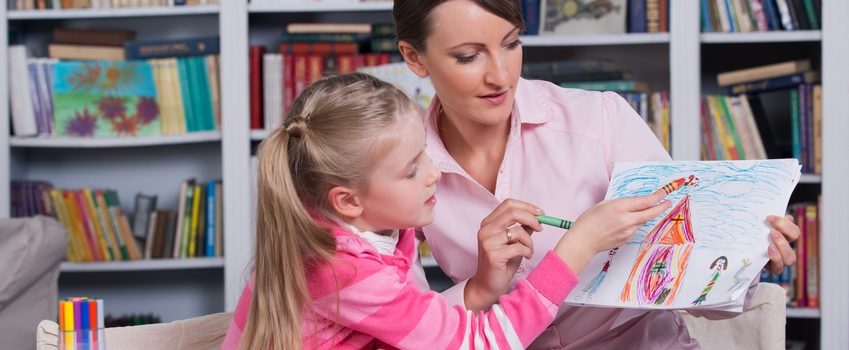Social and emotional skills are essential for children, not only in navigating the classroom and school, but for their entire lives. Social and emotional skills help students focus so they can learn at their optimal abilities. Students who feel safe, cared for, and listened to are emotionally ready to learn.
Academics skills are often thought of as the primary reason students are in school, but social and emotional learning is where students can grow as people and set themselves to succeed in their studies. It’s the foundational learning that can help make a difference throughout their entire lives.
There are five key areas within social-emotional learning:
- Self-Awareness
- Self-Management
- Social Awareness
- Relationship Skills
- Responsible Decision-Making
SELF-AWARENESS
Self-awareness is the realization of how one affects their world. To learn to be self aware, students must observe and reflect on how they interact with the world, and how what they say and do affects others. Teachers can encourage self-awareness through peer mediation, circles and journaling.
SELF-MANAGEMENT
Self-management includes the skills of self-motivation, self-control, and regulating emotions. These skills are useful in helping students who don’t know how to deal with intense emotions like anger or sadness, which often lead to conflicts. Teachers can teach breathing exercises, the importance of taking a break, focusing the mind, or counting until the emotions are more manageable. These are specific tools students need to deal with stress effectively.
SOCIAL AWARENESS
Social awareness encompasses empathy towards others and diversity. It helps students look beyond themselves and begin to become aware of the needs of others. This can be explored through group projects, learning about social issues, and role playing common conflicts in school. It’s the basic understanding of walking a mile in someone else’s shoes to understand them better.
RELATIONSHIP SKILLS
Working cooperatively with others is a key skill that students will need as they go through school and enter the workforce. Relationship skills include working with others, listening, empathizing, and learning how to manage different personality types. These skills develop with group work and in group discussions. Various projects and discussions allow students to see the value of communication and how it’s essential to working cohesively with others in working relationships.
RESPONSIBLE DECISION-MAKING
It’s important for young people to learn that individual actions result in consequences, and individual choices can affect others both positively and negatively. Teachers can use shared agreements, classroom contracts, one-to-one conferences and controlled debates to discuss the effects of various decisions.
Social and emotional skills are necessary life skills. They include problem-solving skills that go beyond the classroom. Ultimately, people with good social and emotional health become high functioning members of society. The path to academic achievement begins with these essential lessons. Students who are emotionally prepared to take on all types of challenges and help each other will achieve success.

